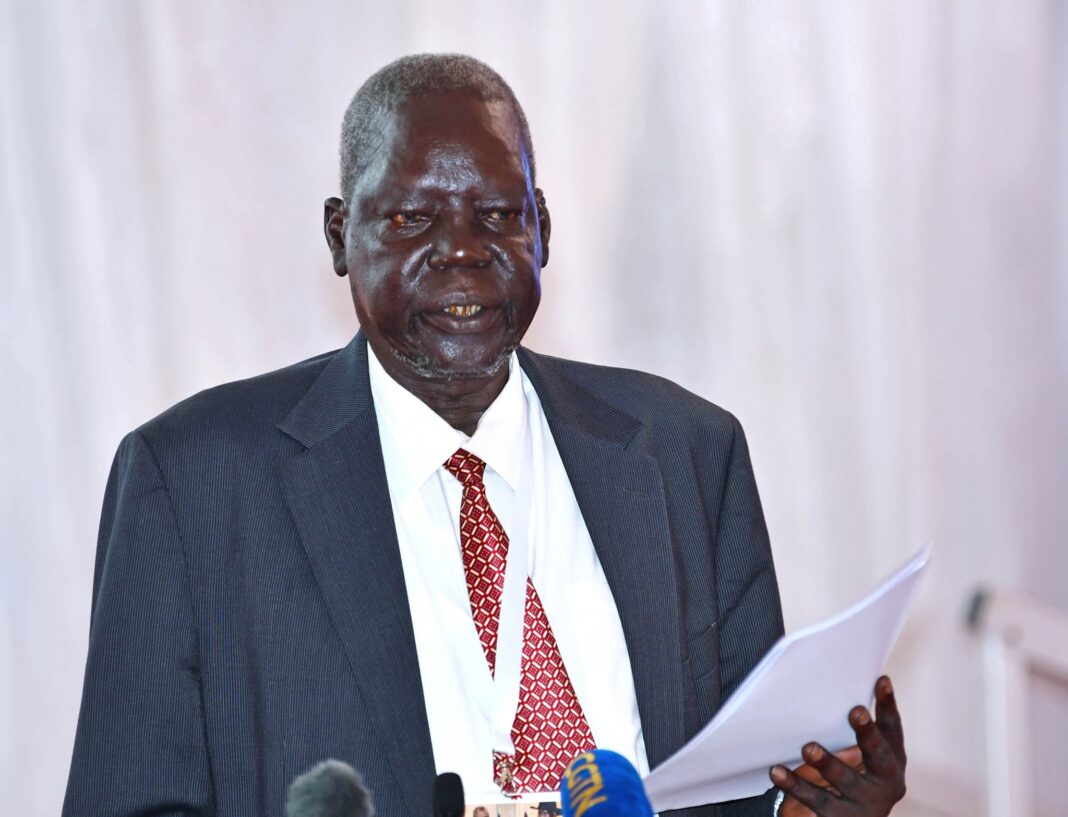The government of South Sudan has refuted the recently published report of the UN Human Rights Commission accusing the state institutions of acting with impunity on human rights violations in the country.
According to the UN rights report, unchecked mass violence and entrenched repression in South Sudan threaten the prospects of durable peace and human rights protection.
The human rights commissioners urge the government of South Sudan to urgently stop and address the human rights violations to live up to the hopes of the people and commitments of the peace agreement.
South Sudan’s Justice Minister Ruben Madol Kachuol led the government delegation to Geneva to inform the Human Rights Council about the government’s efforts in combating sexual gender-based violence through trials adjudicated in the general court and mobile courts across the country.
Minister Madol refutes the allegations labeled against the government by the UN human rights commissioners who visited the country in late February this year.
Madol says the government has read the report of the commission and found that the report is deplorable and fell short of acknowledging the government’s efforts in implementing the revitalized peace agreement signed in 2018 between the government and parties to the conflict.
“The report contains unobserved, unverified, [and] unrealistic allegations of human rights violations and abuses, political repression, economic gradation, discrimination of women, inequality, sexual violence, sexual slavery and displacement of millions [of people]. The events described in the report of the commission [UN Human Rights Commission] cannot match the current improvement of the security situation in the country,” Madol argued.
Minister Madol asserts that the government accepts the UN Human Rights Commission to monitor and report human rights situations, but its powers of investigation should be relinquished to the government and UN Mission in South Sudan [UNMISS].
Yasmin Sooka, the UN Human Rights Commissioner testifies that they found an unacceptable situation in South Sudan, whereby families and communities are devastated by human rights violations and abuses by armed forces, militias, and state institutions acting with impunity.
Sooka says the media and civil society groups operate under intolerable conditions that stifle democratic space for the population at large.
“The drivers of violence and repression are well known, and while commitments have been made to address them, we continue to see a lack of political will to implement the measures necessary to improve millions of lives,” Sooka added.
A handful of suspects in sexual violence crimes have been prosecuted by the National Security Tribunal and military court. Some of the suspects are sometimes set free after weeks of imprisonment.
Last week, the Commissioner of Juba County Charles Joseph Wani disclosed the names of high-ranking military officers who are allegedly terrorizing civilians in Lado Payam of Juba County, Central Equatoria State.
Commissioner Charles says the powerful and untouchable military officers include: Colonel Justin Kulang of the National Security Service, Lieutenant Colonel Kiir, and Brigadier General Mou Mou as well as a Member of the Transitional National Legislative Assembly, Agwele Elio who calls himself ‘chief of Jebel Dinka’ residential area in Juba.
According to Commissioner Charles, the few named suspects have other powerful networking working in the background to invoke fear and displace hundreds of indigenous civilians from their villages and have their lands taken forcefully.
“Many of the suspects often walk out free,” Charles reported. “Why are they released if they are not collaborating? I want to see that all criminals arrested are tried and imprisoned. Many of the suspected land grabbers were arrested but they were freed after two weeks and they continue terrorizing the civilians,” he added.
The Revitalized Agreement on the Resolution of Conflict in the Republic of South Sudan (R-ARCSS) stipulates the establishment of a hybrid court for South Sudan under the auspices of the African Union mandated to investigate and prosecute individuals bearing the responsibility for the serious crimes committed since 15 December 2013 in South Sudan.
However, 11 years have passed without the establishment of the court. Human Rights bodies criticized the African Union for ‘deliberately’ abandoning the establishment of a hybrid court for South Sudan.
Some critics cast doubt on the integrity and independence of the African Union in finding justice for the victims of human rights violations in the world’s youngest nation.




